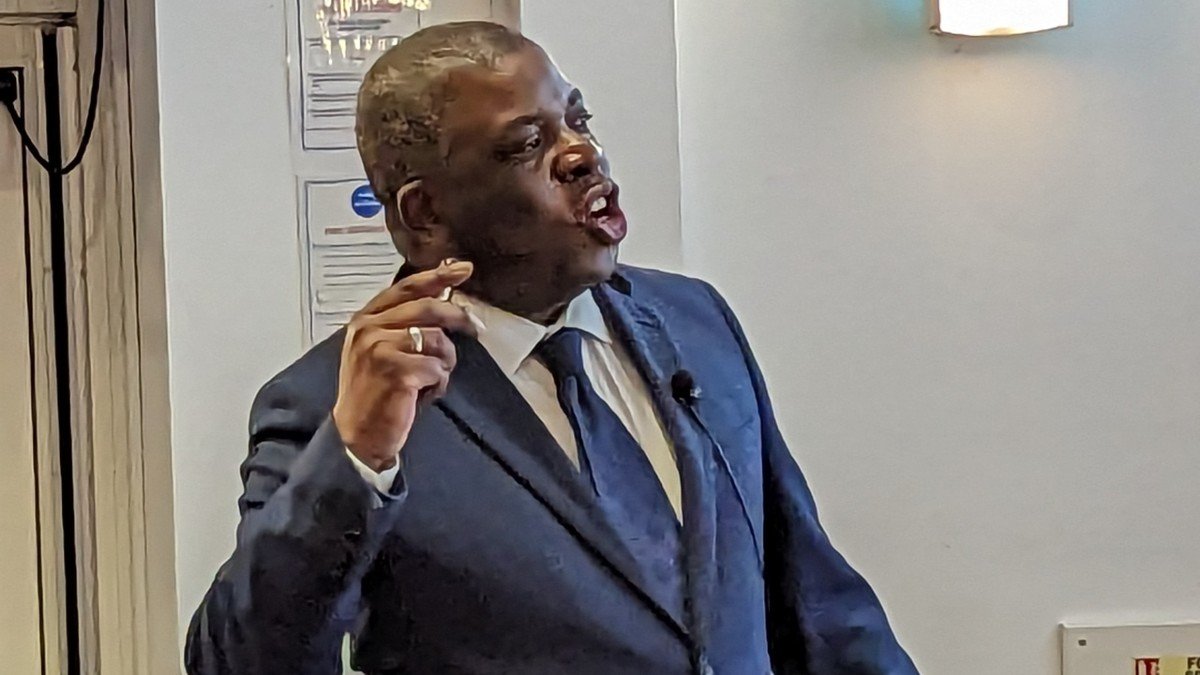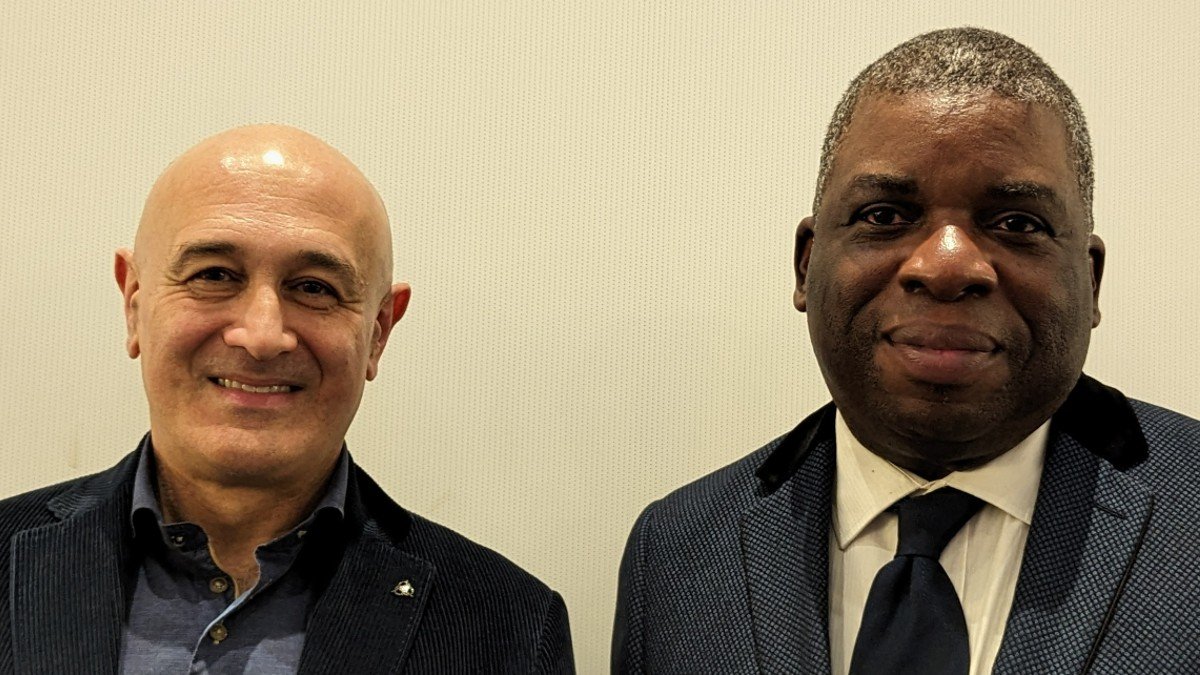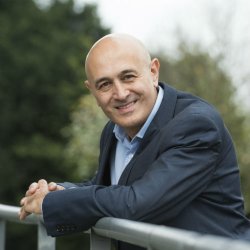Top mathematician prevents AI apocalypse
With the spectre of ChatGPT threatening the stability of life as we know it – if you believe what the sensationalists say – the 2023 annual Lewis Elton lecture was particularly timely.

Nira Chamberlain spoke about how maths can prevent an AI apocalypse
Prof. Nira Chamberlain talked to his audience of students, academics and others about the maths that can stop an AI apocalypse. How do you prevent artificial intelligence from taking over the world?
Respected mathematical modeller Chamberlain informed, entertained and challenged in his witty talk, punctuated by hip-hop and the apt “I’m Only Human” by Rag’n’Bone Man. Mathematical modelling is the most creative side of applied mathematics which itself connects pure maths with science and technology. Mathematical models look into the real world, translate it into mathematics, solve that mathematics and then apply the solution back into the real world.
Chamberlain used the example of a flash mob to demonstrate emergence theory
Using an example of a flashmob, Chamberlain demonstrated emergence theory and the idea that modelling at a micro level not macro can cause states to change. He then highlighted how he had used the age-old concept of the gambler’s ruin – a term used in probability theory to describe a scenario where a gambler loses all their money, regardless of their betting system – to simulate AI takeovers. He discovered the way to minimise the probability of AI dominance was to apply “an anti-AI AI.”
The late great Professor Stephen Hawking once said: “The development of full artificial intelligence could spell the end of the human race.” Thankfully, Professor Nira Chamberlain is helping to prevent this.
“It was a new topic to me,” said one undergraduate student who listened to Chamberlain’s lecture. “I definitely learnt new things.”
“It was a really lively lecture,” said her friend, another student. “But most lectures here are good. This was something you don’t really think about. I enjoyed it.”
Now organised by Professor Jim Al-Khalili, the annual Lewis Elton lecture remembers the University of Surrey’s first Head of Physics. Previous lecturers include television’s Professor Brian Cox and Dr Maggie Aderin Pocock, CERN’s Professor Jon Butterworth, popular science author Dr Simon Singh, astronomer and solar physicist Professor Lucie Green, Professor Fay Dowker, who delivered Stephen Hawking’s eulogy and two Nobel Laureates (Sir Roger Penrose and Professor Adam Reiss).

Jim Al-Khalili hosted the Lewis Elton lecture, which was this year given by Nira Chamberlain

